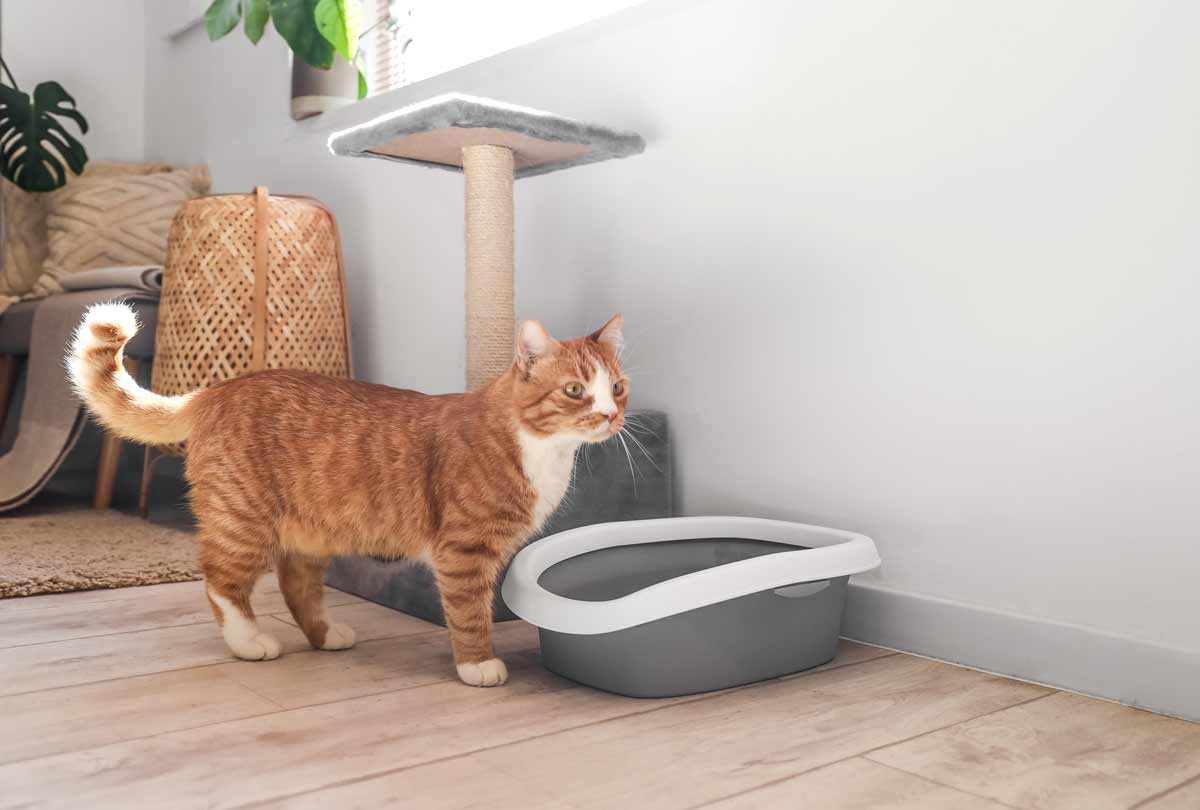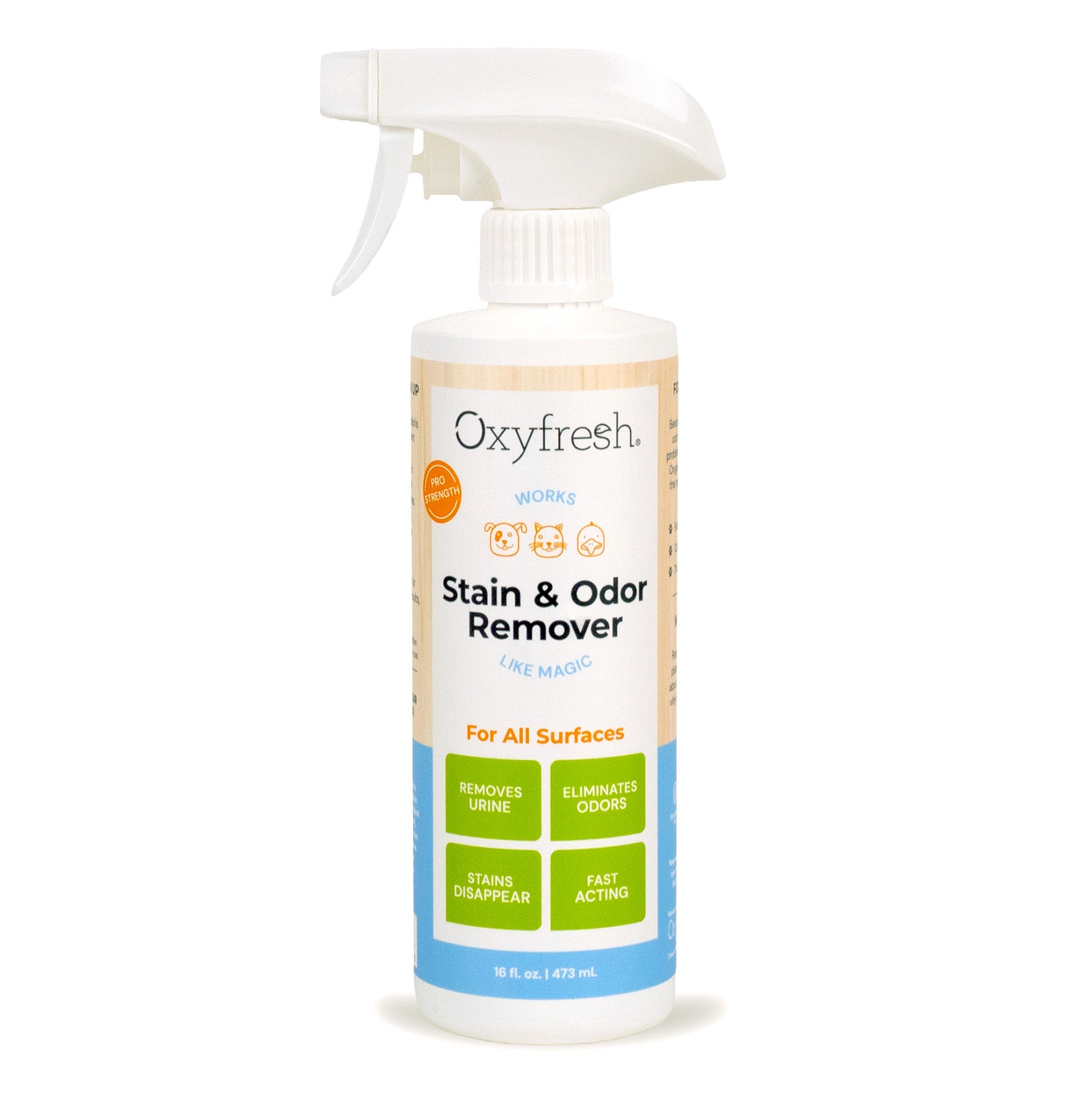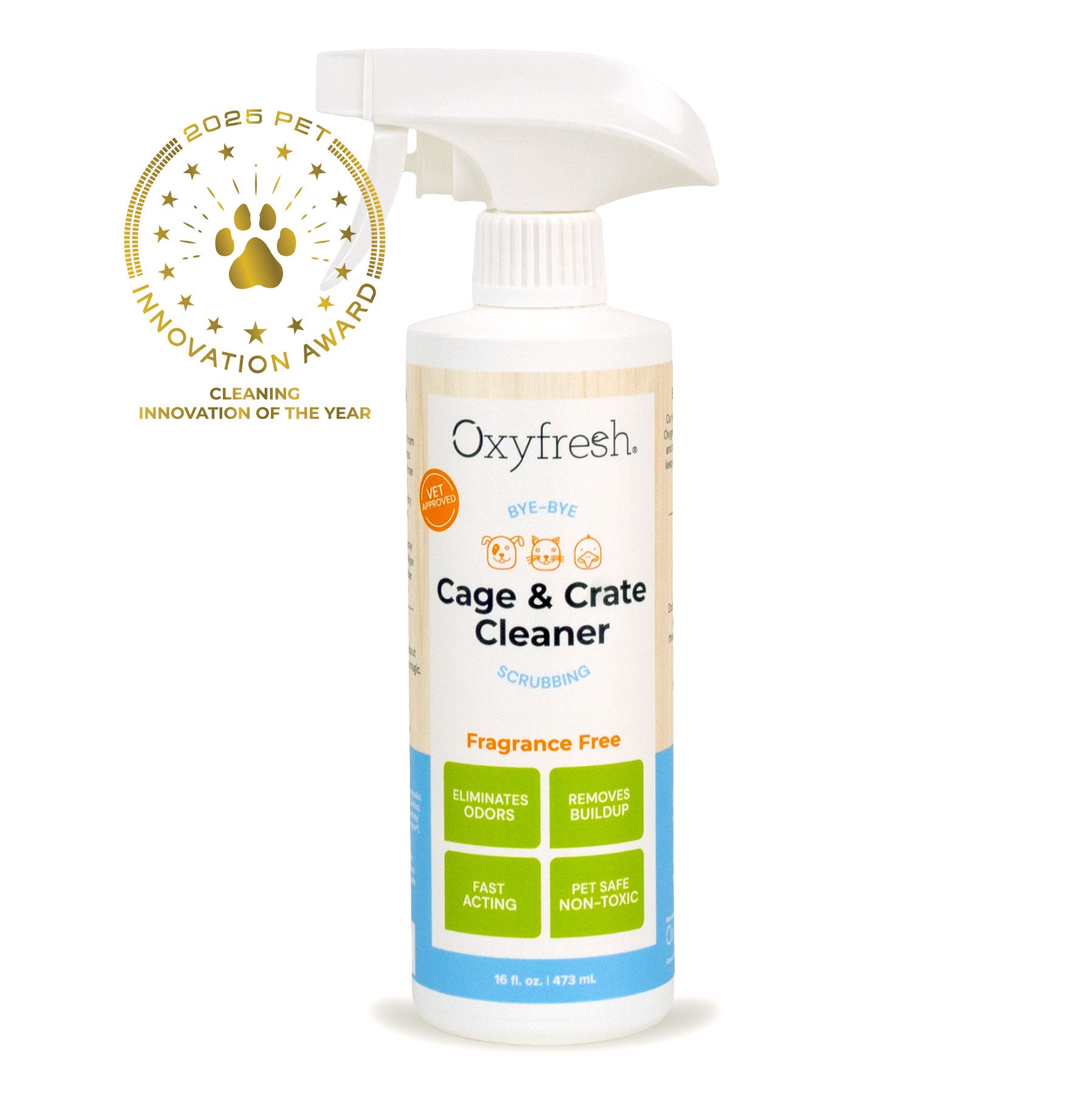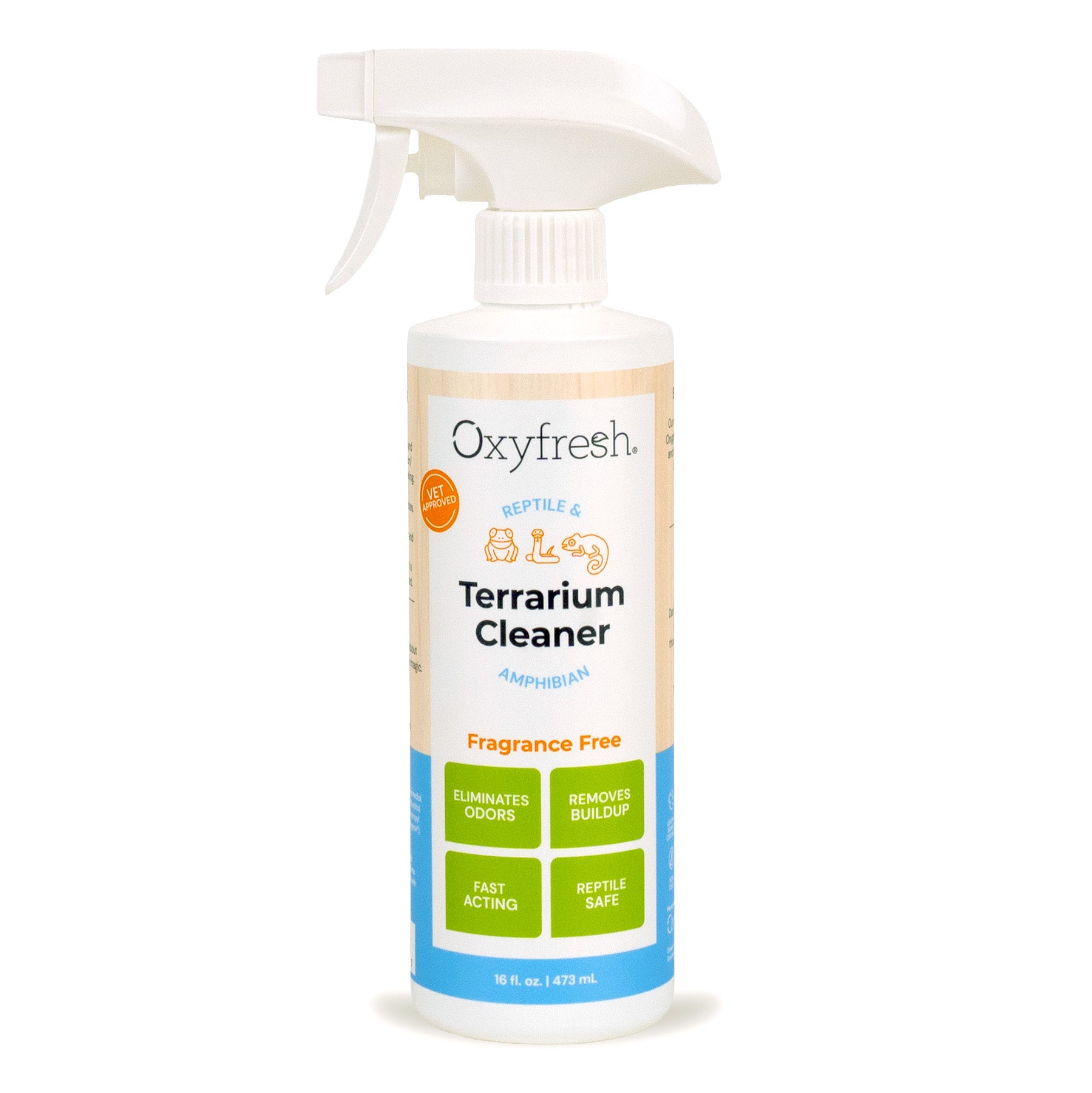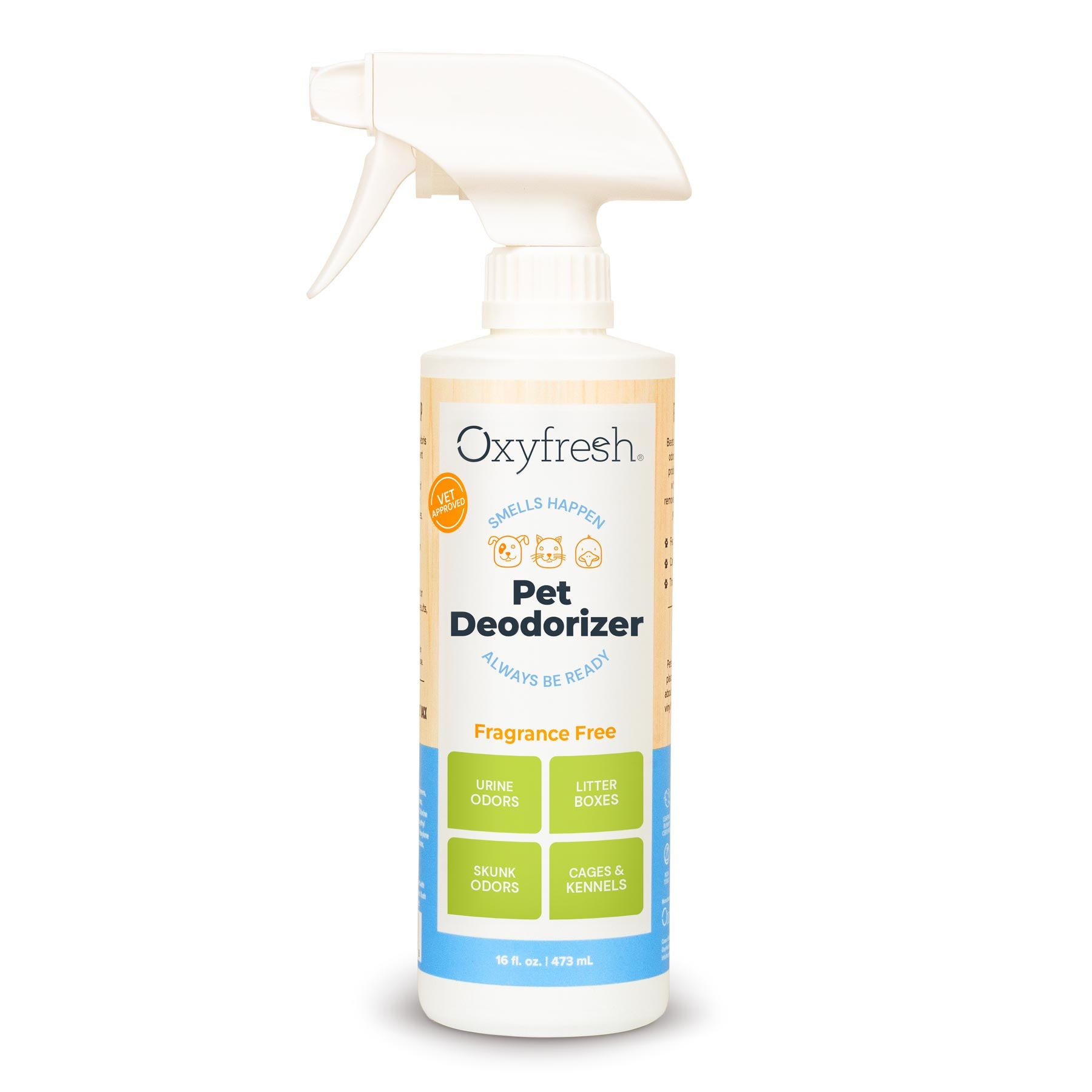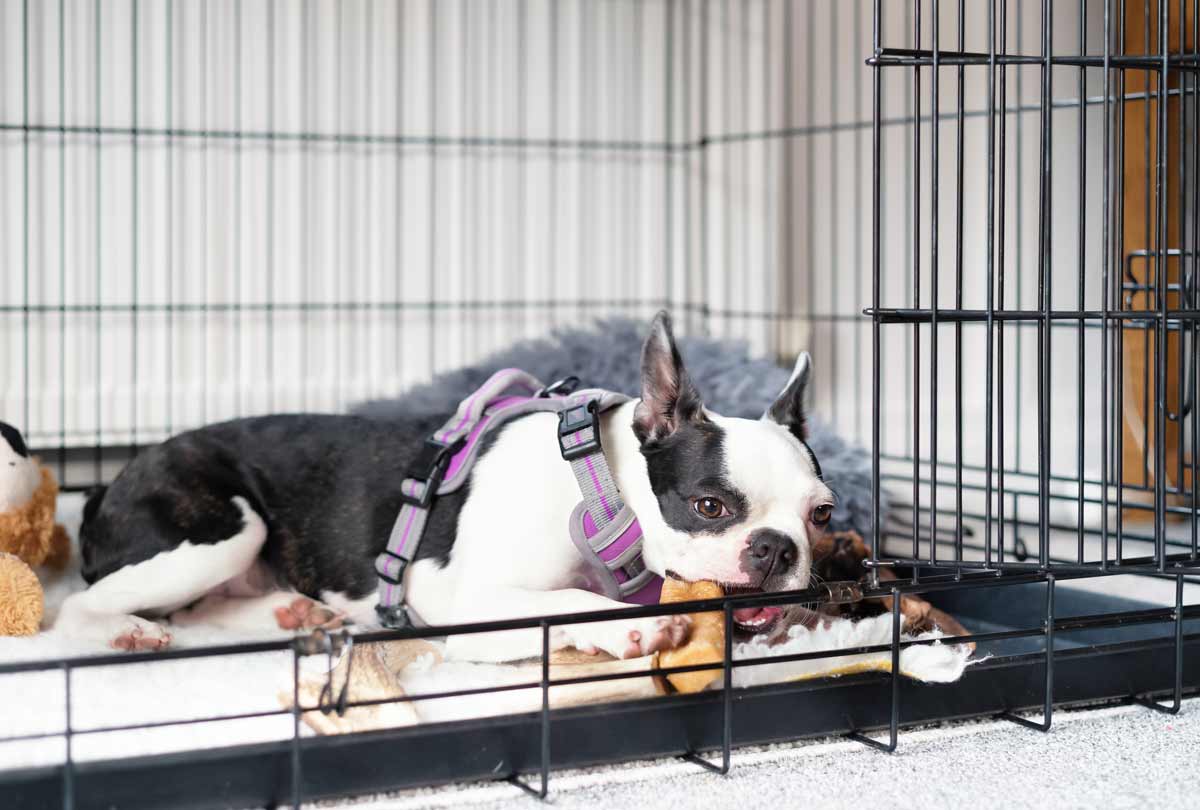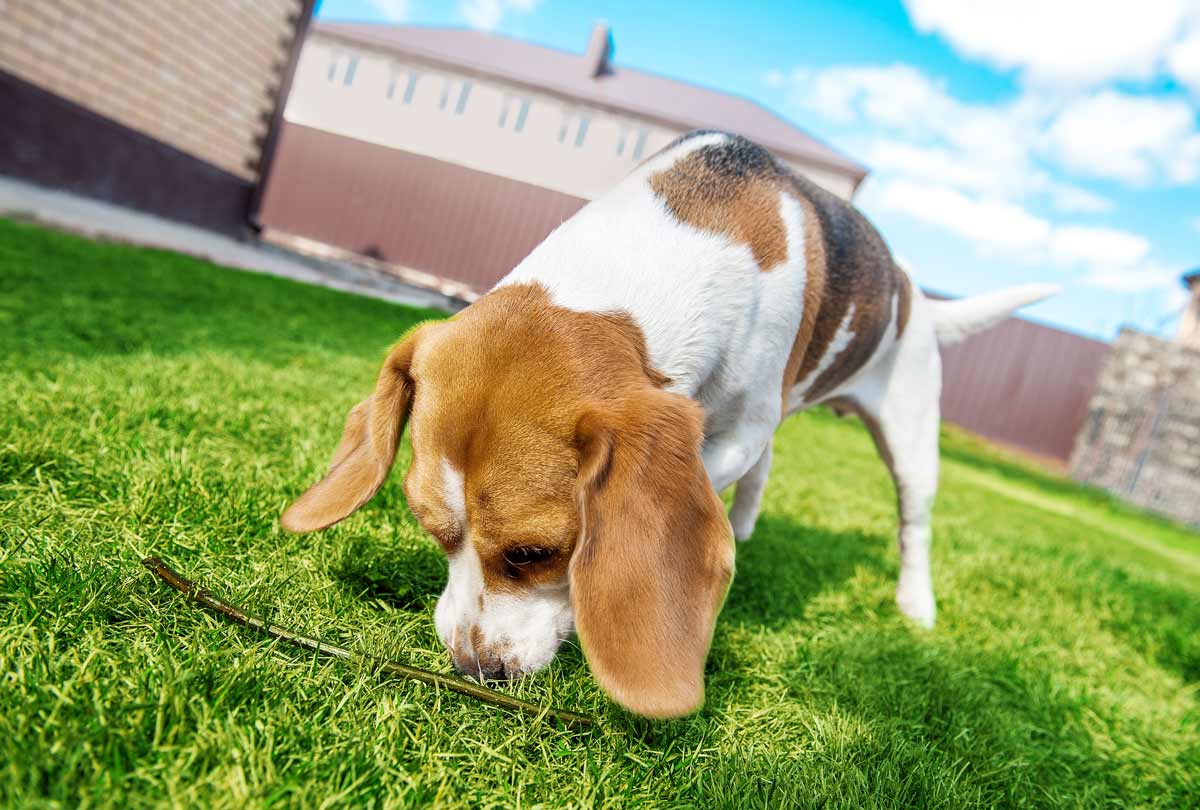Litter box odors are bad enough on their own, but when your cat is peeing OUTSIDE the litter box (and pooping too!) ... oh, yikes.
Contrary to popular belief, ina-poop-riate litter box behavior is not your cat getting revenge on you for some perceived wrongdoing.
Check out the top 5 reasons cats pee and poop outside the litter box, and the best way to send those pesky odors packin’.
Why Is My Cat Peeing & Pooping Outside Litter Box?
#1. You've Got a Stressed-Out Kitty
Cats are creatures of habit and can get stressed out if their typical environment or routine is disrupted. Common sources of stress for cats include:
- Change in the home’s pack members (addition of a pet or person, death of a pet or person).
- Loud parties or remodeling projects. (We don’t like those either, Mr. Whiskers.)
- Recent veterinary or grooming visit. (Car rides, new places, and being handled by strangers can create a "perfect storm" of stress for cats.)
- Boredom. If your cat can’t get their energy out in healthy ways, they may take it out on the carpets.
- Competition. If you have more than one cat, this can lead to feelings of competition for the litter-box space, food, water, the scratching post, and even you.
If your cat is stressed, they may exhibit any of these signs:
- Excessive scratching
- Diarrhea
- Hiding or extra clinginess
- Loss of appetite
- Over-grooming, especially on the legs or belly (you may even notice bald spots if it’s extreme)
- Not using the litter box
Many of these signs can also indicate a health issue, so when in doubt, let the vet sort it out.
#2. Litter Box Is Not Up to Your Cat's Standards
The most common reason for cats peeing and pooping outside the litter box is they don’t like the litter box. Here’s what you can do to ensure your cat is a little more friendly with this must-use essential.
- Make sure your litter box is as clean as possible. You’ll want to scoop it daily and do a monthly deep clean. Need some guidance? Check out How to Keep Cat’s Litter Box from Smelling Up Your House.
- When it comes to the size of the litter box, bigger is better. It should be 1.5x the length of your cat, from nose to base of tail. They need to be able to enter, turn around, scratch and do their business comfortably. Also, those covered litter boxes? They can make cats feel "clawstrophobic," so if you have one, you may want to change it out.
- The litter box should be in a quiet yet easily accessible area, away from where the cat eats or drinks. Just like humans, cats don’t want to be stared at when they’re going to the bathroom, so to give your cat some privacy, consider a decorative screen. It will cordon off their space with the bonus of beautifying your surroundings.
- Make sure your senior cat can easily get into the litter box and that it’s in a location where they don’t need to climb stairs to access. This may involve you purchasing a new litter box or embracing your inner MacGyver skills and building a ramp.
- If you suddenly changed your cat’s litter to a different material/texture, they may be like, "Oh, this is sooo not happening." (Remember – cats are creatures of habit.) Also, cats are sensitive to smells, and if you’re using scented litter, it could be irritating your cat.
#3. You're Bein' Stingy with the Litter Boxes
OK, stingy is a strong word, but the bottom line is you’ll want to make sure you have enough litter boxes in your home. The rule is one litter box per cat, plus one more. Some cats like to have one box to pee in and one to poop in. Additionally, if you have more than one cat, multiple boxes will help ensure there’s no competition between cats for litter-box territory. You’ll want to put the boxes in different places too, so the alpha cat doesn’t try to guard the boxes and keep the other cats out.
#4. Possible Health Purroblem
If cat peeing outside the litter box is totally out of the blue, you’ll want to make an appointment with the vet to rule out any health issues. There are several medical problems that can cause urinary issues with cats, and therefore troubles with cats peeing outside the litterbox:
- Bladder stones
- Idiopathic cystitis (inflammation of the bladder)
- Kidney disease
- Liver disease
- Diabetes
- Thyroid issues
- Urinary tract infection (rare in young cats)
- Incontinence
- Arthritis
- Parasites
- Gastrointestinal problems
The vet will perform an exam and may recommend some diagnostic tests, such as a urine or fecal sample or x-rays.
Remember: cats peeing or pooping outside litter box are not trying to get back at you for something (I told you I wanted salmon, dammit, NOT tuna!), so don’t discipline your cat for this behavior.
If cat peeing outside litter box is due to a health condition, the problem is only going to get worse. So if you’ve got the litter-box basics down and you’ve eliminated stressors in your cat’s life, the vet will help figure out the cause of the problem.
#5. Accidents Aren't Cleaned Up Well Enough
If your cat’s peeing outside the litter box, chances are it’s in the same spot over and over again. When this happens, it’s usually because they can still smell their urine in that specific spot. Completely eliminating the urine odor is key, but this is easier said than done. This is where choosing your cleaning products is of utmost importance.
Put down the bleach and slowly back away.
Cat urine has a high ammonia concentration. Bleach mixed with ammonia is a dangerous combination, as it releases harmful gases. Not only should you not spray cat pee with bleach, but any towels you use to mop up cat urine should not be laundered with bleach.
Besides being dangerous, bleach does not actually stop cat pee smell. It only masks it for a short time and can ironically make it smell worse.
Fragrance should make a cat parent suspicious.
Fragrances are only in cleaning formulas to MASK odors. And unless they’re essential oils, we can guarantee those fragrances are chock-full of toxic chemicals that aren’t healthy for cats or anyone else in the home. Because fragrances are considered a trade secret, you won’t see those chemicals listed on the product label ... boo! So if you see the word "fragrance" with no other explanation as to the source, you’ll want to steer clear.
Best cleaners to neutralize cat pee smell
Enzyme cleaners do a fantastic job at breaking down the smelly uric acid in cat pee, although some people complain about enzyme cleaners leaving an oily residue behind.
You can also use an oxidizing cleaner, which targets odors at the microbial source, stealing the electrons of the offending odor, rendering them inactive. (Science = awesome.)
Cleaning Must-Dos for Cat Peeing Outside Litter Box
- Use a towel to absorb as much cat urine as possible before you clean anything. (Stepping on the towel with a heavy shoe soaks up a lot more pee.)
- Soak the surface with an enzyme or oxidizing cleaner.
- Let the cleaner sit for 15 minutes, then blot up as much as you can with a clean towel.
- Let the surface air dry, as this will help break down the uric acid salts.
Pro tip: While you’re waiting for the cleaner to work its magic, it’s smart to loosely cover the area. This will stop your kitty from trying to urinate in the same spot and keep YOU from accidentally stepping in it. Ideas include laying aluminum foil over the area or covering it with an upside-down laundry basket or aluminum sheet pan.
Note: Unlike wine, cat urine does not get better with age ... it gets stinkier! So if the stain is super old, you may need to repeat the cleaning process a few times. It WILL be worth it.
#1 Product to Send Cat Pee & Poop Odors Packin'
To 100% neutralize those stubborn cat pee and poop smells, go with the product thousands of cat parents swear by: Oxyfresh Pet Deodorizer.
This is the only cat odor neutralizer on the market that has the power of proprietary Oxygene® to stop odors right at the source. It’s non-toxic, fast-acting, and best of all, SO EFFECTIVE.
You can use this powerful oxidizing spray anywhere pet odors lurk in your home: the litter box, soiled carpets, garbage cans, and even directly on your cats if they get into a stinky situation. (Yes, it’s that safe.)
There's no bleach, sticky residues, harmful chemicals, or fragrances. Just true freshness both you and your cats will appreciate.
Try it and put an end to the battle with cat litter box odors for good!

